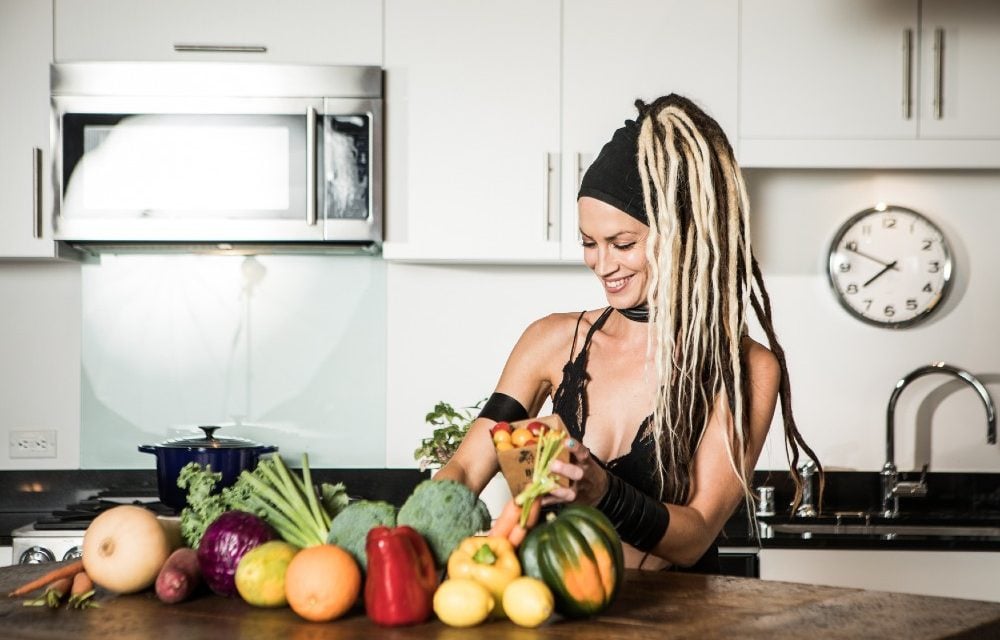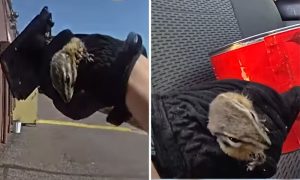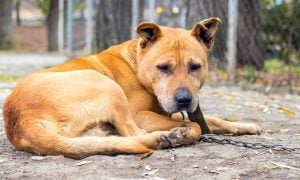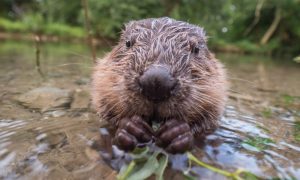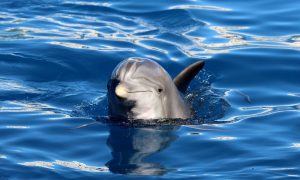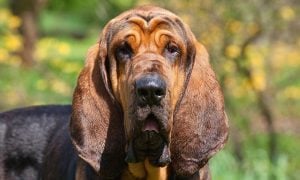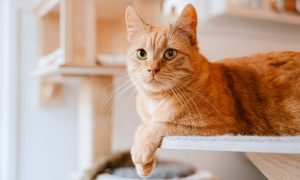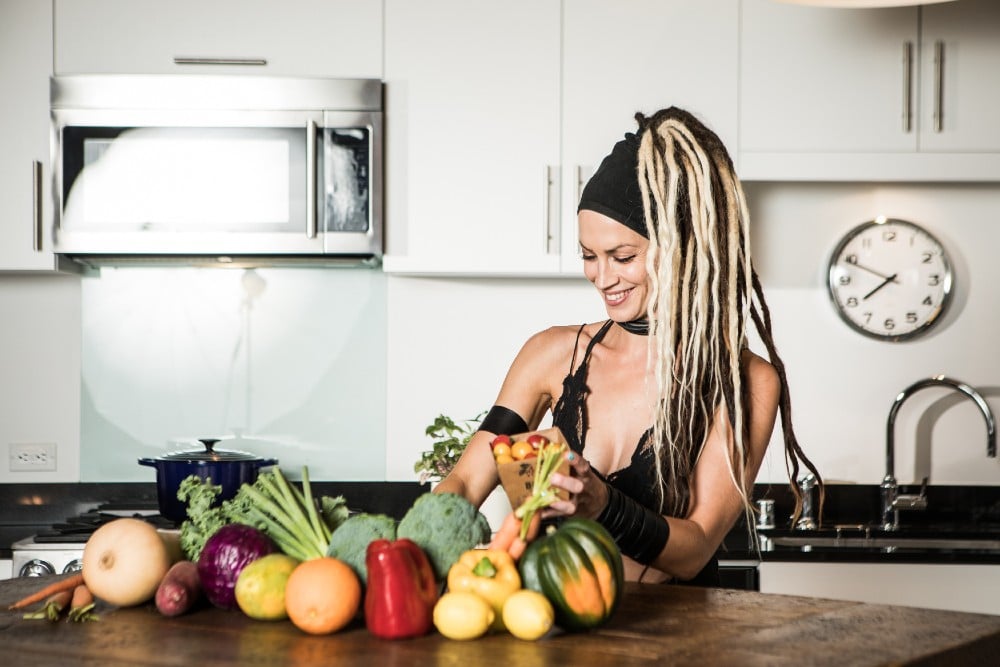Irish musician Tanya O’Callaghan has always trusted her gut and followed her passion — whether that was challenging her family’s eating habits when she learned, at age four, that “meat” came from the animals she loved or leaving her straight-A school record as a teen to become a now famous, touring musician.
O’Callaghan — who made headlines in 2021, after the already star-studded bassist got scooped up as the first female musician to join the band Whitesnake – said she’s never strayed from her plant-based lifestyle, not even while on the road during world tours.
“Veganism on the road,” O’Callaghan started, with a laugh. “Simple thing is, I never question it. It’s not a case of, ‘I can’t find anything vegan, I’m going to have animals today.’ It’s just not an option.”
Her journey started in Mullingar, a small town in Ireland, where O’Callaghan recalled a herd of cows who lived nearby, one of whom she affectionately named “Daisy.” When her older brother — no doubt meaning to be annoying, she said — informed her that the meat on her plate was “Daisy,” the young O’Callaghan snapped.
The adult O’Callaghan clarified that the specific cow she named Daisy wasn’t likely the one on her plate, but she vowed to never eat meat again.
“I had a meltdown,” she said. “I was four when I realized what meat was, that it came from an animal. I loved animals. That was it.”
Volunteer work rehabilitating animals at a local shelter exposed her to horrific abuse inflicted on the animals she loved, and O’Callaghan took her anger and turned it into activism — a self-described “aggressive” activism that she’s since shifted to instead awakening people’s natural curiosity and tapping into people’s natural kindness.
“My big belief with this is just living by example,” she said. “I’m not here to judge anybody. I love getting into interesting conversations with diametrically opposed views. I really believe that that’s where the growth is. Obviously there’s a percentage of the human race that we’ll never know why they just don’t seem to have empathy. But the majority of people all over the world are inherently kind, and they’re just trying to live their lives the same way you and I are. They’re just trying to be happy, have food and shelter, have some type of purpose.”
Travel, and connecting to so many people with different beliefs and backgrounds, helped O’Callaghan refine her approach to activism.
She also channeled her passions – for travel, animals, the planet, and lifelong learning — into an in-the-works docuseries, “Highway to Health,” which tracks her travels through the world as a plant-based touring musician, along with co-host Derrick Green.
Those interested in following O’Callaghan on her newest adventures can check out her Instagram at tanyaocallaghan_official, or her website is https://tanyaocallaghan.com/.
A Q&A with Tanya O’Callaghan: The Plant-Based Bassist of Whitesnake
Tell us more about your early connection to animals and your choice to stop eating them?
Even when you look back on all my childhood photos, when I’m really tiny, there’s animals everywhere. So I have that very visceral memory of just instinctively and innately being drawn to animals from the beginning.
It was because of a cow that I called Daisy. I grew up in a small town in Ireland, and behind our house was a field full of cattle. They weren’t ours, but when you’re a child, you think all animals are your pet, right? I named all the cows, and one was Daisy. So one day I was sitting at the table, I was four or five, my brother told me, “That’s Daisy on the table.” It wasn’t obviously THE Daisy, but I remember vividly being like, “Wait, what? That’s animals?” And that was it. That was my first, very guttural feeling of “This is not right.”
(Getting my family on board) was a little bit of a battle, but at the same time, I’m naturally so stubborn. One day my dad just started coming home with veggie burgers. Funny enough, (now) I’ll hear my mom say stuff like, “Oh, I heard dairy causes inflammation.” And I’m like, “I told you that 15 years ago.” Now my family is predominantly plant-based.
I stuck to my guns, but I was learning the whole time. You have to understand, I was an aggressive, angry activist when I was young.
Can you tell us more about how your approach to activism shifted over the years – from angry activist to someone who encourages even small steps toward a plant-based lifestyle?
When I was age eight, I started volunteering at an animal rescue shelter in my local hometown. Ten years of my life was based around this place. I saw a lot of horrible animal abuse and neglect from having to rehab animals. I was young and very, very passionate; I had all this pent up anger for the animals.
I got involved with all the protests in Dublin and writing letters to the governments, from when I was a tiny kid and couldn’t even spell. We got in trouble with the guards because we were going out and getting in the way of fox hunters, in fur shops, the whole thing. And I don’t regret any of it, because people very much needed the awareness.
When I started to travel, that’s when I really started to understand more that everybody’s coming from a different culture, from a different background and a different understanding, and you just can’t judge people immediately. It’s like this moral high ground we take that defeats the whole purpose of what veganism is supposed to be really.
The vegan movement can actually be quite detrimental to the vegan movement. It’s meant well, but when it comes across in a militant form — although I get it, because I did that — I also saw people put up an immediate wall. You will appeal to a certain demographic who were already questioning, but if somebody is not ready to hear it and you’re being aggressive and in their face, you’re just going to throw them further down the road and they’re just going to put up that wall.
With my own platform (on Instagram), it has astounded me how many messages I get every single day from people who have gone plant-based simply because the food I post looks delicious or because something made them think. It’s “Did you know that in order to whatever it is by the dairy industry, or the leather industry …” and people will message me every single day from all over the world saying they didn’t know. It’s conversational.
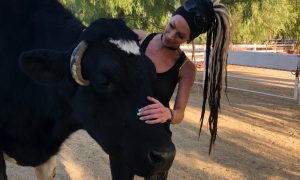
At The Gentle Barn. (Courtesy of Tanya O’Callaghan)
There are so many reasons why people choose to go plant-based — for the animals, the planet, and their health — but you’re passionate in particular about conscious consumerism. Tell us more?
One thing that drives me insane is mendacious marketing. I’m always saying to people that they are being lied to as a consumer all day long. Most people fall for that type of marketing that says “free range”, “grass fed”, “humanely slaughtered” — the world’s greatest oxymoron — because people are inherently kind, and the marketing industry is trying to speak to that.
Regardless of whether you care about animals, you should care who’s taking your hard earned money and what it’s really going into. If you could trace the money and really understand where your money’s going, you’d be shocked and horrified. And that’s not to say that vegans are living this perfect moral high ground life. Not at all. We all have blood on our hands. We have Iphones, you know. But at least we’re taking steps to tread a little kinder everyday on the planet and then learn as we go.
Conscious consumerism, to really sum it up, is just understanding where your food and the products that you purchase come from. In an ideal world, we’d all be shopping as local as possible. We’d all be supporting farmer’s markets. You can’t always do that because we live in a society where we’ve gotten used to everything being available all the time; nothing is seasonal anymore. A good start is just learning, bit by bit, literally where your food comes from. Don’t just look at the label.
Some “debates” just don’t have two sides. It’s stunningly clear: We’ve known for a long, long time the impact of mass animal agriculture.
Any thoughts on trying to be a “perfect” vegan?
I do encourage people to be more plant-based. But trying to be a perfect vegan is ridiculous, like trying to be a perfect human is impossible. We’re all fallible beings. Trying to be a perfect anything … I’d rather be called a conscious consumer.
We need to have a conscious revolution. We really do. That might sound too “hippy” to people a lot of the time. But if we all start to understand a bit more, just cared a little bit more about where things came from, we could send a really strong market signal as a consumer, and the market would shift.
Has it been challenging to stay committed to a plant-based diet when you’re on the road touring?
I’ve never found it hard. Look at the menu; no matter where you are, there’s going to be vegetables. There’s going to be sides. I have had some of the best plant-based meals of my life at steak houses. The chefs are quite often bored with the same mundane things they have to cook, so they get excited.
One particular memory was from a fishing port, in Cape Town, where there’s this famous little fish restaurant. We had this big meeting with a promoter and I was like, “Oh, maybe I’ll eat later,” because they literally just serve fish. But the chef came out because he knew who we were, and I said, “If you have some fresh seasonal veggies, if you want to throw something together…” and I’m thinking I’d get steamed broccoli. But he made me these incredible vegetables, and he was so excited because he was a French trained chef who never got to cook like that.
So I’ve had all these wonderful experiences around the world at the most unlikely, non-vegan places.
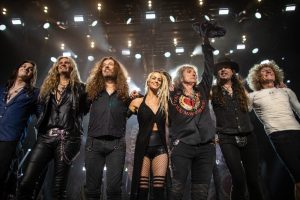
Whitesnake. (Courtesy of Tanya O’Callaghan)
Tell us about “Highway to Health,” the docu-series you’re working on where you explore plant-based foods in different parts of the world!
(Co-host) Derrick Green (of Brazilian band Sepultura) and I have been friends for years. We are both touring musicians, and we were both in Ireland a couple years ago. I was telling Derrick I’d like to do a traveling show, and we kind of showed each other our pitches and realized our ideas were very similar: Why don’t we just join forces?
So I went out to try to raise some funds just to get it off the ground, get some footage, look at our touring schedule, see where we’re going. I hired my two best friends, who are both vegan also now, so the whole project is people who believe in the cause. We ended up shooting almost seven full episodes.
The whole point of the show is to normalize vegan. It’s very lighthearted, and it’s an incredible world. We were on the boats with Sea Shepherd in Mexico, with plant-based chefs, because you can’t be out saving one species and eating another. That episode is based on ocean conservation.
Where we’re at with this is we’re editing and trying to get it out, which is such an interesting thing because it’s a topic that a lot of industries don’t want out. So what ends up happening is we get endless feedback that the show is so amazing, like you guys are so fun, this is so cool. But we’ve literally been told it’s too intelligent. People have tried to say it should be a reality show, like “Do you guys ever fight?” And we’re like, “Oh geez.”
So right now we’re just shopping it to try and get it out to networks. It’s a very, very frustrating, long process. So if any of your readers know a quick shortcut with that one?
You mentioned you come from a farming background, and that the system actually also hurts farmers?
I think farmers are the most hardworking people in the world. And I think it’s a disgrace how they’re screwed because of how the system works. They’re forced to use these pesticides, and they’re forced to do mass animal agriculture and feedlots. I’ve spoken to farmers, and they’re like, “This is not how my granddad did it. I want to turn the land the way that I want. I don’t want to monocrop.” They’re forced into this situation because subsidies hold up this industry, and all this comes back to the power is in the hands of the consumer. Every single dollar you spend is a vote. Everything, every product, every piece of food, everything you spend is a vote that sends a message to an industry that is waiting for a market signal.
It sounds like there’s hope then?
That’s what’s very hopeful about this movement. We have the power. We just need to wake up, and wake up fast here. We need to all wake up more, we need to stop floating through life completely unaware of where everything comes from just because we can simply click a button and order what we want. It has become such a fast-paced, disconnected, materialistic world.
We don’t stop and think, where did my food come from, where did my clothes come from, my products? We are unknowingly participating in industries we would absolutely not support if we saw the dark underbelly of these industries that are cleverly disguised with genius marking. If we could all start shifting back toward a sustainable, fair trade, cruelty-free economy, we would make a huge positive impact on our planet, our fellow humans, and animals’ welfare.
Any other advice for people who are heartbroken by the cruelty they see toward animals?
Try to stay positive. When I look at my lifetime so far, the amount of change that’s happened ramped up so fast that it’s very encouraging. But everyday I still see slaughter trucks. If I’m driving to LA, I’m like, “It’s not happening fast enough.” But you have to stay positive. It’s so important to use your platform, and living by example is the most powerful thing you can do.

